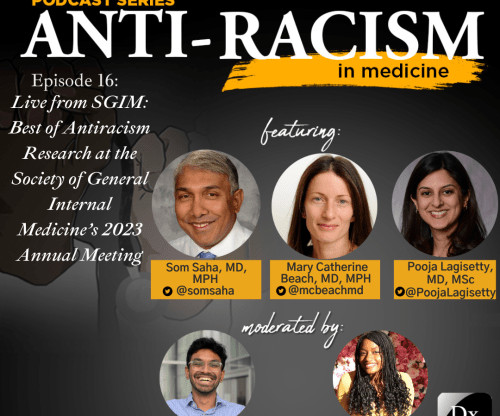Episode 181: Antiracism in Medicine Series – Episode 9 – Moving Towards Antiracism in Medical Education
The Clinical Problem Solvers
JUNE 9, 2021
[link] Summary In this special episode of the Antiracism in Medicine Series, originally recorded for the 2021 Society of General Internal Medicine Annual Meeting, the CPSolvers Antiracism team discusses what must be done to make medical education more antiracist. board examinations and mandated competencies).






























Let's personalize your content